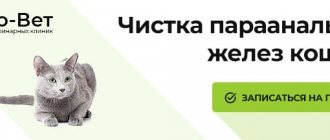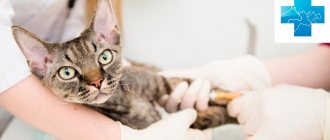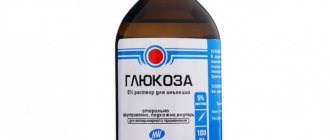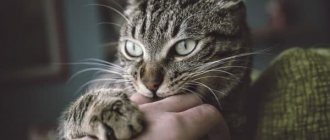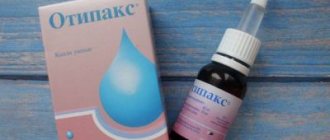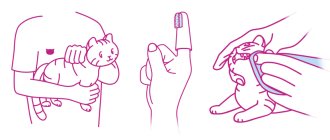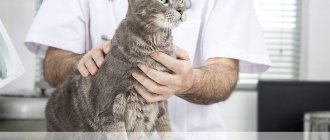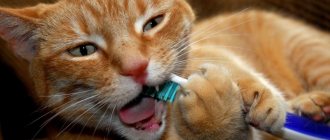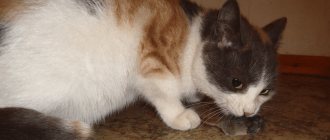Domestic cats often experience inflammation of the paraanal glands. However, many owners do not even know that their pet has them and what functions these glands perform. So that you can help your cat in a timely manner and prevent consequences dangerous to its health, see the most useful information about the signs and causes of inflammation of the paraanal glands.
Read in this article:
What are paraanal glands? Common causes of inflammation Signs of inflammation and abscess Treatment: main stages and methods
- Cleaning
- Washing
- Removal
Recovery after treatment Prevention of inflammation of the paraanal glands
When do cats and dogs need to have their anal glands cleaned?
Usually these glands are completely cleared when stool is released. This is a natural process and there is no need to interfere with it.
But in some cases they can become clogged, and then the normal removal of secretions from the pet’s body is disrupted. If the bags are overfilled, the well-being of the “tail” deteriorates sharply. In such a situation, an urgent visit to a veterinarian is necessary. If treatment of the inflamed organ is not started in time, pathogenic bacteria begin to multiply in it. An infection gradually develops, which can result in suppuration.
The most common causes of blockage of the paraanal glands are:
- inflammatory process;
- genetic factor;
- diseases of the digestive system;
- constipation;
- helminth infection;
- infection;
- improperly formed dog diet with a predominance of protein foods or bones;
- lack of hygiene;
- weakening of the body's defenses.
Most often, the problem with gland blockage occurs in pets of small breeds (pugs, Pekingese, dachshunds, Shih Tzu, Spitz, etc.) They move too little, which is why their feces soften significantly, disrupting the normal process of bowel movements. Most often the disease affects pregnant and lactating females.
How to understand that the anal glands are full
The main signs of overflow of the paraanal glands in dogs and cats are pain and discomfort, so the owner needs to pay attention to the pet’s behavior. If an animal constantly bites its hind legs, frequently licks its anus, tries to catch its tail, or rubs itself on the floor, you should show it to a specialist. Symptoms of blockage of the paraanal glands are also a fishy smell emanating from the tail, redness of the anus and difficulty defecating. As the disease progresses, an abscess sometimes develops, from which blood and pus flow out upon opening.
In total, there are four stages of blockage of the paraanal glands:
- The total amount of secretion decreases sharply, and the pet begins to experience severe itching.
- The liquid inside the sacs thickens greatly, causing it to become compacted. At this time, spasms of the animal’s hind legs are often observed.
- The secretion of the gland stops draining naturally. An infection develops, followed by inflammation. Your pet may experience acute pain when defecating.
- The duct is completely blocked, and the pet develops an abscess of the paraanal gland. His body temperature rises and his general health deteriorates significantly.
Causes of malfunction
According to statistics, this disease usually affects male cats with a sedentary lifestyle.
The main causes of peri-anal inflammation in cats are: unbalanced and excessive nutrition leading to intestinal obstruction, obesity, trauma to the anus, parasites, pregnancy.
Is it possible to check on your own whether your pet’s sinuses are blocked?
When the anal sinuses are in normal condition, they are empty and feel soft to the touch. You should wear sterile rubber gloves and carefully insert your finger into the anus and examine its walls in search of seals.
Of course, this is not the most pleasant procedure for both the owner and the pet. And if you are not a professional, you can press too hard and harm your pet’s health. Therefore, it is better to consult a doctor or grooming specialist.
What happens if you do not contact a veterinarian in time if there is a pathology?
Don't think that the problem will solve itself. As we have already said, the accumulated secretion in the anal sacs becomes an excellent breeding ground for the proliferation of pathogenic bacteria. If clogged anal glands are not cleared, your pet will require lengthy and complex treatment.
Signs of a worsening situation are:
- pain experienced by the pet during bowel movements (he may whine, grunt, etc.);
- hair loss;
- redness of the tissues near the anus;
- wet areas;
- presence of fistulas;
- swelling in the anal area;
- presence of irritation, etc.
In such cases, the animal needs urgent help from a specialist. You cannot clean the anal glands yourself!
Why do you choose us?
Part of the Perm State Medical University named after. I.M. Sechenova Clinic of Coloproctology and Minimally Invasive Surgery is an example of a new generation of medicine, harmoniously combining the deepest fundamental knowledge, honed skills, a modern multidisciplinary approach and attentive attitude to any category of patients.
KKMH is a guarantee that the surgical interventions performed within our walls correspond to the most current ideas about colorectal surgery. This includes our own department of anesthesiology and intensive care, whose employees ensure a smooth course of the operation and the early postoperative period and treat seriously ill patients. This is an “open intensive care unit”, where you can not only find out the most complete information about the condition of a loved one, but also be with him during a difficult time for him.
The doors of our Clinic are open to patients who were denied treatment in other hospitals due to the complexity of the surgical intervention or the neglect of the process. Elderly patients, patients with a “bouquet” of concomitant diseases (so-called comorbid) are an area of our special interest. The presence in the hospital of such highly professional specialists as a cardiologist, pulmonologist, urologist, etc. allows us to treat patients of any age and with any concomitant diseases.
KKMH is a dynamically developing team of specialists who sincerely and deeply love their work, who are continuously learning and teaching others, who are interested in keeping you healthy.
Appointment with a veterinarian in advanced cases
The doctor will examine your pet and prescribe the necessary tests. Usually a general blood test is required, but sometimes the contents of the anal glands and skin scrapings are also taken for analysis.
Based on the research results, the specialist will determine a treatment regimen and give the owner recommendations for treatment and prevention of relapse of the disease.
Usually it is enough to thoroughly clean and rinse the glands, treat the surrounding tissues with disinfecting compounds, and then give the pet a course of therapy with antibacterial and painkillers. To prevent infection in the postoperative area, a veterinary collar is placed on the pet’s neck.
Deep cleaning of the glands is carried out without general anesthesia using local anesthesia. The patient is immobilized and the procedure is carried out carefully.
If the inflammatory process has progressed far and complications have arisen, drainage may need to be installed or surgery to remove the anal glands.
Dogs should be taken for walks more often during treatment. Any abstinence from bowel movements can cause constipation and impair tissue healing.
The owner also needs to provide the pet with a special diet of fiber-enriched, easily digestible foods. Ideally, make an appointment with a veterinary nutritionist.
What is the likelihood of the disease returning?
The risk of disease relapse with complex, high fistulas is slightly higher than with simple intrasphincteric fistulas and depends on the type of fistula, its location, and the presence of previous surgical interventions. Treatment of recurrent fistulas is a particularly difficult task for a coloproctologist. Previous operations on the anal canal create gross cicatricial deformities, changing the anatomy and significantly impairing the function of retention, and a long course of the disease or inadequate previous treatment can lead to the formation of additional streaks and passages. In such conditions, planning of surgical intervention should be carried out after a full examination.
The success of the upcoming surgical intervention largely depends on a comprehensive assessment of the available data using various diagnostic methods and a mandatory conversation with the surgeon. An important factor is also the implementation of surgical intervention in a specialized hospital, where this type of treatment is based on world research data, their own many years of experience and is carried out by specialists who have successfully completed training and courses to improve their skills in treating this disease.
Important! The skill of a coloproctologist is judged all over the world by the ability to correctly operate anorectal fistulas, since since the existence of proctology, the treatment of fistulas has been and is now perhaps the most difficult section of diseases of the anorectal zone!
Prevention of disease after treatment
You need to visit a veterinarian at least once every six months. The anal glands should be cleaned only when indicated. The groomer or doctor will first conduct an examination, and only if the presence of blockage of the paraanal glands is confirmed, will he carefully empty the sinuses.
Other equally important methods for preventing sinus blockage are:
- fight against excess weight, if any;
- deworming;
- taking care of your pet's hygiene;
- tracking the frequency of his bowel movements;
- intensive walks with dogs or active games with cats;
- regular feeding of a balanced diet.
If you follow all the doctor’s recommendations, the animal’s intestines will begin to empty normally. The pet's condition will remain stable and no additional cleaning will be required. Feces passing through the anus will put pressure on the paraanal glands, and secretions from the sacs will freely release into the external environment during defecation.
Anatomy of the rectum and perianal region, functions of the obturator apparatus
The rectum and anal canal are the final sections of the digestive tract. The immediate tasks of the rectum are the accumulation, formation and excretion of intestinal contents and gases. The functions of the anal canal are unique: a system of nervous reflexes and a complex muscle complex provide one of the most important functions of the body - control of bowel movements, as well as differentiation of the composition of intestinal contents without the need for conscious assessment and subsequent “smart” control of evacuation. In other words, a healthy person most of the time does not think about what kind of contents are in the rectum, whether it is necessary and whether it is possible to retain it in a given situation. All this is controlled unconsciously, thanks to multi-level neuromuscular self-regulation of the holding process.
The approximate boundary between the rectum and the anal canal on the side of the mucous membrane (lumen) of the intestine is formed by the so-called dentate line. There are vertical folds on it, alternating with depressions - crypts. The ducts of the anal glands open into the crypts. The mucus produced by these glands facilitates the sliding of intestinal contents as they pass through the anal canal. Circumstances such as trauma, swelling of the mucous membrane due to defecation disorders, chronic intestinal diseases can lead to inflammatory changes in the crypts and anal glands.
Outside the mucous membrane there is a complex of muscles - these are the sphincter muscles mentioned above, which provide the function of retention and excretion. There are internal and external sphincters. The internal sphincter forms the so-called resting tone, uninterruptedly ensuring the tightness of the anal canal. Its regulation and reduction occur unconsciously, that is, without our will. The external sphincter surrounds the internal one and consists of several layers (portions). Its reduction occurs due to our volitional effort (Fig. 1).
Figure 1. Schematic representation of the rectal sphincters
Is it necessary to clean the paraanal glands of a pet just like that, for prevention?
No: the process of secretion extraction should normally proceed without outside interference. Any pressure on the sinuses and artificial emptying of the glands without medical indications can only cause harm. It is strictly forbidden to interfere with natural processes if they proceed normally without pathologies.
Our specialists carry out cleaning only when necessary, which is communicated to the owner after the examination and/or procedure.
Owners need to know about the existence and principles of operation of the paraanal glands in order to promptly suspect irregularities in their work and promptly seek advice. We categorically do not recommend mechanical cleaning without indications.

